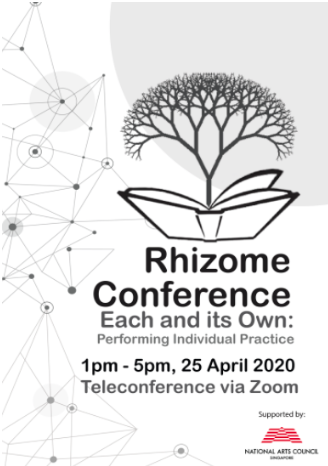
Rhizome Conference 2020 : Each and its Own: Performing Individual Practice
Organiser: Rhizome @WITrhizome
The Rhizome Conference 2020 is a gathering of dedicated researchers, practitioners and scholars in the field of Performance-Making to critically discuss new possibilities of artistic practice.
Hailing from various disciplines and sharing a common love for performance, the panel of speakers will present their work and exchange ideas, with the aim of generating new perspectives and nurturing a community of inquiry.
Tittle: Creativity as a Method
Abstract
My reflection begins with asking one fundamental question: why am I (are we) making art and who is this art for? What are the methods and ways of working? How we, as, artist, exist in a space and what is this space? Perhaps my reflection is more about how do we as an artist, provoke change and whether we can create an ecological system of rigour and sustainability in our practice, especially in the very trying climate. How do we as artist transcend from this ‘space’ into something more tangible and viable? Yes, we are in a crisis, a world engulfs in wrath that is streamed from neoliberalism. Maybe I am pessimistic, and perhaps I am merely asking whether creativity as a method can be a transcendental change?









